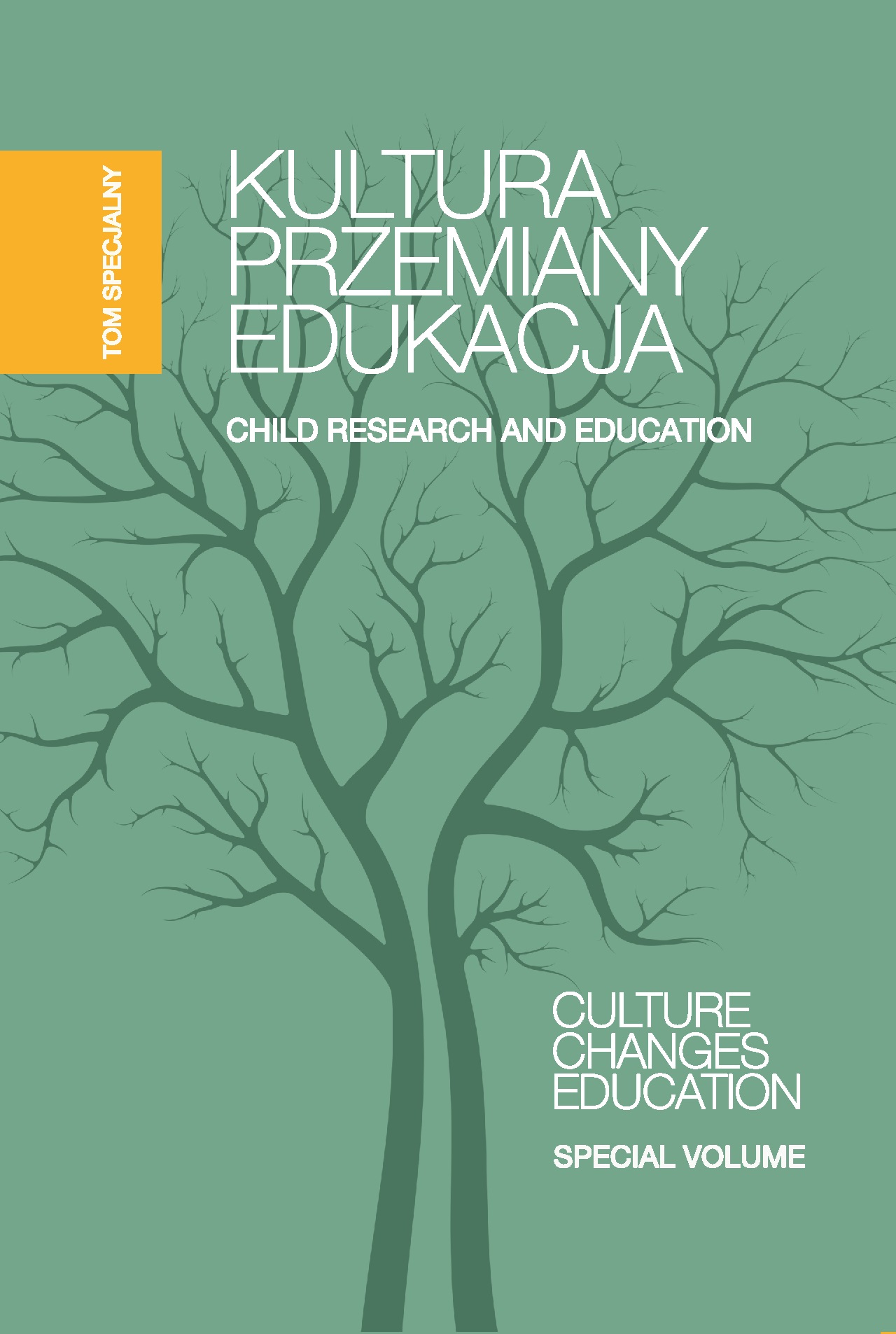Projekt Escol@s Digitais. Doświadczenie w pracy z technologiami w szkołach podstawowych w Portugalii
DOI:
https://doi.org/10.15584/kpe.spec.crae.2024.12Słowa kluczowe:
transformacja cyfrowa, umiejętności cyfrowe, edukacja podstawowa, integracja technologii w program nauczania, model szkolenia nauczycieliAbstrakt
Projekt Escol@s Digitais to projekt naukowo-badawczy, który narodził się z inicjatywy gminy Amadora (Portugalia) i jest rozwijany przez zespół badawczy Instytutu Edukacji Uniwersytetu Lizbońskiego. W ramach linii badawczej Edukacja XXI ma na celu wsparcie trwającej transformacji cyfrowej we wszystkich publicznych szkołach podstawowych na terenie gminy w celu poprawy jakości procesów i wyników nauczania. Mając na celu pogłębienie i utrwalenie istniejącej wiedzy i praktyk, projekt definiuje cztery główne cele, które należy świadomie realizować przez cały okres jego trwania: 1) docenienie pracy wykonanej w szkołach w ramach transformacji cyfrowej, wyróżnianie i promowanie skutecznych praktyk; 2) wzmacnianie trwałej integracji dynamiki nauczania i uczenia się z technologią cyfrową w klasie i w innych kontekstach lokalnych; 3) uznawanie i ocena umiejętności cyfrowych uczniów, mając na uwadze portugalski profil uczniów kończących naukę obowiązkową; 4) monitorowanie działań projektowych i zrozumienie ich wpływu na nauczycieli i uczniów. W artykule przedstawiamy główne pytania wyjściowe, a także podłoże koncepcyjne i przesłanki, które leżały u podstaw konstrukcji planu interwencji. Choć plan obejmował inne wymiary, szczególnie związane z zarządzaniem szkołą, tutaj szczególny nacisk położymy na przyjęte przez nas założenia technologii cyfrowych i sposób, w jaki pracowaliśmy z nauczycielami. Kończymy przedstawieniem założeń projektu i osi pracy.
Downloads
Bibliografia
Apple Computer, Apple Classrooms of Tomorrow – Today Learning in the 21st Century, Cupertino 2008.
Avdeeva S., Uvarov A., Tarasova K., Digital Transformation of Schools and Student’s Information and Communication Literacy, “Voprosy Obrazovaniya / Educational Studies Moscow” 2022, 1, doi: 10.17323/1814-9545-2022- 1-218-243.
Bǎnuţ M., Albulescu I., The integration of Digital Competences into the Primary Education Curriculum, “Astra Salvensis” 2021, 2.
Bartolomé A., Revisando actitudes ante las tecnologías digitales, “Innovaciones Educativas” 2021, 23.
Bers M., Designing Digital Experiences for Positive Youth Development: From Playpen to Playground, Oxford 2012, doi.org/10.1093/acprof:oso/9780199757022.001.0001.
Costa F., Cruz E., Fradão S., Rodriguez C., Repensar as TIC na Educação. O Professor como Agente Transformador, Lisboa 2012.
Costa F., Curricular development and ICT: From technological deficit to methodological deficit [in:] ed. EDEN, Tallinn 2016.
Costa F., Viseu S., Action and Reflection – nuclear strategies of teacher training for ICT use [in:] ed. Persson M., Karlstad 2006, doi:10.1163/23528230-08002005.
Dwyer D., Ringstaff C., Sandholtz J., Apple Computer, Teacher Beliefs and Practices Part I: Patterns of Change. ACOT Report #8, Cupertino 1992.
Ertmer P., Teacher pedagogical beliefs: The final frontier in our quest for technology integration?, “Educational Technology Research and Development” 2005, 53(4).
Europeen Comission, Digital Education Action Plan (2021–2027). Resetting education and training for the digital age, Brussels 2020.
Governo de Portugal, Aprendizagens Essenciais – 1.o CEB, Lisboa 2018.
Governo de Portugal, Orientações Curriculares para as TIC – 1.o CEB, Lisboa 2018.
Governo de Portugal, Perfil dos Alunos à Saída da Escolaridade Obrigatória, Despacho n. 6478/2017, Lisboa 2017.
Governo de Portugal, Plano de ação para a transição digital de Portugal, Lisboa 2020.
Governo de Portugal, Programa de digitalização para as Escolas, “Resolução do Conselho de Ministros n. 30/2020, Lisboa 2020.
Hargreaves A., Changing teachers, changing times, Toronto 1994.
Hunter J., Technology Integration and High Possibility Classrooms. Building from TPACK, New York 2015.
INCoDe2030, Quadro Dinâmico de Referência de Competência Digital para Portugal, Lisboa 2019.
Jonassen D., Computers as cognitive tools: Learning with technology, not from technology, “Journal of Computing in Higher Education” 1995, 6.
Kolb L., Learning First, Technology Second: The Educator’s Guide to Designing Authentic Lessons, Portland 2017.
Lewin C., Smith A., Morris S., Craig E., Using Digital Technology to Improve Learning: Evidence Review, London 2019.
Luić L., Švelec-Juričić D., Lasić-Lazić J., Šantalab M., Planning, Managing and Leading the Digital Transformation of Schools [in:] ed. IATED, Valencia 2022, doi: 10.21125/iceri.2020.
Makki T., O’Neal L., Cotten S., Rikard R., When first-order barriers are high: A comparison of second-and third-order barriers to classroom computing integration, “Computers and Education” 2016, 120, doi:10.1016/j.compedu.2018.01.00.
Mialaret G., Psicopedagogia dos meios audiovisuais no ensino do primeiro grau, Petrópolis 1973.
OECD, Education at a Glance 2018, 2018.
OECD, OECD future of education and skills 2030. OECD learning compass 2030, 2019.
Ottenbreit-Leftwich A., Liao J., Sadik O., Ertmer P., Evolution of Teachers’ Technology Integration Knowledge, Beliefs, and Practices: How Can We Support Beginning Teachers Use of Technology?, “Journal of Research on Technology in Education” 2018, 50(4), doi: 10.1080/15391523.2018.1487350.
Papert S., What’s the big idea? Toward a pedagogy of idea power, “IBM Systems Journal” 2000.
Peralta H., Costa F., Teacher’s Competence and Confidence regarding the use of ICT, “Sísifo. Educational Sciences Journal” 2007, 3.
Petko D., Teachers’ pedagogical beliefs and their use of digital media in classrooms: Sharpening the focus of the «will, skill, tool» model and integrating teachers’ constructivist orientations, “Computers and Education” 2016, 58(4), doi: 10.1016/j.compedu.2011.12.013.
Player-Koro C., Rensfeldt A., Selwyn N., Selling tech to teachers: Education trade shows as policy events, “Journal of Education Policy” 2018, 33(5).
Puentedura R., SAMR: Getting To Transformation, 2011.
Redecker C., Punie Y. (ed.), European Framework for the Digital Competence of Educators: DigCompEdu, Luxembourg 2017, doi: 10.2760/178382 (print),10.2760/159770 (online).
Renz A. Vladova G., Hellmuth D., Beyond Technology: Dimensions of Digital Transformations in Schools [in:] ed. ISPIM Connects, Valencia 2021.
Resnick M. (ed.), Lifelong kindergarten: cultivating creativity through projects, passion, peers, and play, Massachusetts 2017.
Rogers E., Diffusion of innovations, New York 1995.
Tondeur J., van Braak J., Ertmer P., Ottenbreit-Leftwich A., Understanding the relationship between teachers’ pedagogical beliefs and technology use in education: a systematic review of qualitative evidence, “Educational Technology Research and Development” 2016, 65(3).
Volkov Y., Chikarova G., Current Issues young teachers’ professional identity in a big city, “WorldJournal on Educational Technology: Current Issues” 2021, 13(2), doi: 10.18844/wjet.v13i2.5713.
Pobrania
Opublikowane
Jak cytować
Numer
Dział
Licencja
Prawa autorskie (c) 2024 KULTURA – PRZEMIANY – EDUKACJA

Utwór dostępny jest na licencji Creative Commons Uznanie autorstwa – Bez utworów zależnych 4.0 Międzynarodowe.


